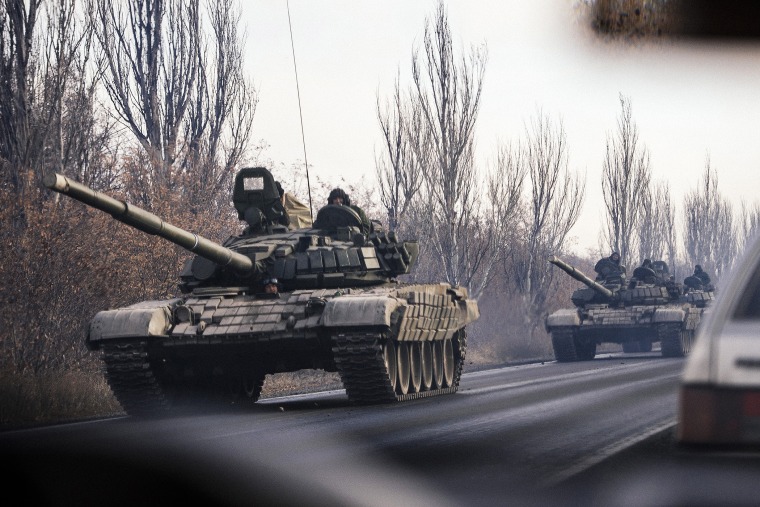When Republican officials were writing the party's national platform, Donald Trump and his campaign team showed no interest in the document's contents -- with one exception.
The Washington Post reported two weeks ago that Team Trump made a special effort to alter the party platform on U.S. policy towards Ukraine. The change brings the Republican platform in line with the wishes of the Russian government, even while contradicting the Republican Party's foreign-policy orthodoxy.
Reporting from the GOP convention, the New Yorker's Ryan Lizza said he'd spoken to a Republican congressman who said the "most under-covered story of convention" is Team Trump's efforts to change the party platform "to be more pro-Putin."
On "This Week" yesterday, George Stephanopoulos asked Trump about what happened.
STEPHANOPOULOS: Well, why did you soften the GOP platform on Ukraine? TRUMP: I wasn't involved in that. Honestly, I was not involved-- STEPHANOPOULOS: Your people were. TRUMP: Yeah. I was not involved in that.
Asked if he understood what his campaign aides did to the platform's language, Trump added, "They softened it, I heard."
Right around the time viewers saw Trump make this acknowledgement, Trump campaign chairman Paul Manafort told "Meet the Press" viewers that "no one" from Team Trump had anything to do with this change to the platform. That's not only in conflict with the Washington Post's report, it seemed to be at odds with what Trump himself said on a different network at the same time.
Given some of Manafort's work in Ukrainian lobbying, some skepticism about his assurances on the subject are probably in order.
And then the story got much worse.
TRUMP: [Putin is] not going into Ukraine, okay, just so you understand. He's not gonna go into Ukraine, all right? You can mark it down. You can put it down. You can take it anywhere you want-- STEPHANOPOULOS: Well, he's already there, isn't he? TRUMP: Okay -- well, he's there in a certain way.
Not surprisingly, this exchange caused a bit of a stir, leading the GOP nominee to clarify on Twitter this morning, "When I said in an interview that Putin is 'not going into Ukraine, you can mark it down,' I am saying if I am President. Already in Crimea!"
Given the transcript, this is a little hard to believe. But even taken at face value, it seems as if Trump's position, in effect, is, "Other than all of the stuff Putin is already doing and has done in Ukraine, if I'm elected, he won't go even further."
As for a potential Trump administration's policy, the GOP nominee, sounding very sympathetic to Vladimir Putin's talking points, added, "[Y]ou know, the people of Crimea, from what I've heard, would rather be with Russia than where they were. And you have to look at that, also."
Keep in mind, in his extraordinary press conference last week, a reporter asked Trump about his willingness to recognize Crimea as Russian territory and possibly even lifting sanctions. "We'll be looking at that," Trump answered on Wednesday. "Yeah, we'll be looking."
I mention this because it's a reminder that Trump had a few days to nail down his position on this issue. Apparently, this is what he and his team came up with.
